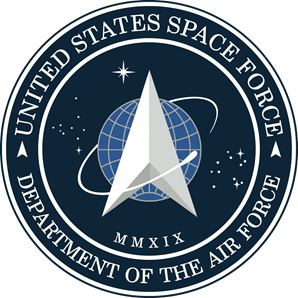TRADEMARK BOARD FINDS EXCUSABLE NONUSE BY FORMER NARCOTICS TRAFFICKER
Timothy J. Lockhart
The Trademark Trial and Appeal Board (TTAB) of the U.S. Patent and Trademark Office (PTO) dismissed the oppositions of ARSA Distributing, Inc. to the applications of Salud Natural Mexicana S.A. de C.V. to register the trademarks EUCALIN and EUCALIN and Design (Color) for nutritional supplements and related goods in International Class 5. ARSA Distributing, Inc. v. Salud Natural Mexicana S.A. de C.V., 2022 USPQ2d 887 (TTAB 2022) [precedential] (Opinion by Judge Christen M. English). Because Salud Natural Mexicana S.A. de C.V. (Salud) was banned as a narcotics trafficker from doing business in the United States from 2008 to 2015 and began TTAB litigation against ARSA Distributing, Inc. (ARSA) in 2106, the TTAB held that Salud’s nonuse of its EUCALIN mark during since 2008 was excusable and that Salud had not abandoned that mark with an intent not to resume use of it, precluding ARSA from establishing priority in the EUCALIN mark for similar goods.
The U.S. Treasury Department named Salud as a Specially Designated Narcotics Trafficker (SDNT) in 2008, claiming that Salud was one of several Mexican pharmaceutical companies participating in a network to make and distribute methamphetamines. In 2015, after its SDNT ban was lifted, Salud filed a trademark application for EUCALIN for use with “pharmaceutical products, namely, vitamin supplements, nutritional supplement made with a syrup with jelly base, honey base, and with a mixture of plants with propolis base, and herbal remedies in the nature of herbal supplements,” in International Class 5. In 2017 Salud filed a trademark application for EUCALIN and Design (Color) for use with “herbal supplements; nutritional supplements; vitamin supplements,” in International Class 5.
ARSA filed its two Notices of Opposition in 2018, claiming that it had made prior common-law use of EUCALIN for “dietary and nutritional supplements” and that the PTO had suspended its application for EUCALIN, filed earlier that year, based on a potential likelihood of confusion with the marks in Salud’s 2015 and 2017 applications. As the ground for each opposition ARSA alleged a likelihood of confusion under Section 2(d) of the Trademark Act, 15 U.S.C. § 1052(d).
ARSA argued that its “ongoing sales and advertising . . . of its EUCALIN product from 2008 to [the filing dates of Salud’s applications] establish that [it] has used its EUCALIN mark long before the constructive use filing dates of [Salud’s applications], and thus [ARSA] has priority of use of the EUCALIN mark on nutritional and dietary supplements.” In response Salud asserted that between 1999 and October 2008 ARSA was its U.S. distributor and, therefore, “all of the goodwill of any EUCALIN labeled product went to [Salud] as the supplier of the goods and products.”
The TTAB found that although “that there was no clear [distribution] agreement between the parties,” product packaging used in 1999 showed that Salud manufactured the EUCALIN product in Mexico and that ARSA distributed it in the United States. That and other facts led the TTAB to conclude that ARSA “has not rebutted the presumption that [its] use of the mark from 1999 to . . . 2008 inured to the benefit of [Salud] as the owner of the mark.”
Next the TTAB considered the issue of whether Salad had abandoned its EUCALIN mark by not using it in U.S. commerce from 2008 to 2015. The TTAB noted that “[t]here are two elements to a nonuse abandonment claim: nonuse of the mark and intent not to resume use” (citing Section 45 of the Trademark Act, 15 U.S.C. § 1127; Executive Coach Builders, Inc. v. SPV Coach Co., 123 USPQ2d 1175, 1180 (TTAB 2017)). The TTAB further noted that “[e]vidence of nonuse of a mark for three consecutive years constitutes a prima facie showing of abandonment, and creates a rebuttable presumption that the owner has abandoned the mark without intent to resume use (citing 15 U.S.C. § 1127; Executive Coach Builders, 123 USPQ2d at 1180) (other citations omitted))” and that “[t]he statutory presumption of abandonment applies not only to a registered mark but also to a party’s unregistered common law mark (citing Hornby v. TJX Cos., 87 USPQ2d 1411, 1421 (TTAB 2008)).”
The TTAB said that Salud’s not using its EUCALIN mark in the United States from 2008 to 2015 created a rebuttable presumption of abandonment but that because of Salud’s SDNT classification, such nonuse was excusable. And the TTAB said that, although Salud had not resumed use of EUCALIN for over seven years after 2015, Salud’s filing of its first EUCALIN application in 2015, its filing of infringement petitions against ARSA’s Mexican suppliers of EUCALIN products in 2016, and its “vigorous defense of [ARSA’s] oppositions [since 2018] supports a finding that [Salud] has maintained an intent to resume use of the EUCALIN mark throughout the parties’ litigation (citing Penthouse International, Ltd. v. Dyn Electronics, Inc., 196 USPQ 251, 257 (TTAB 1977)).”
Thus, the TTAB concluded that Salud did not abandon the ECULAIN mark with an intent not to resume use of it and that, as between Salud and ARSA, Salud has priority in the mark. Accordingly, the TTAB dismissed ARSA’s oppositions to Salud’s trademark applications for EUCALIN.

APPLICATION FOR MARK US SPACE FORCE CRASHES AT TRADEMARK BOARD
An application to register US SPACE FORCE as a trademark crashed at the Trademark Trial and Appeal Board (TTAB) of the U.S. Patent and Trademark Office (PTO) when the TTAB ruled that the mark caused a false suggestion of a connection with the United States Space Force. In re Thomas D. Foster, APC, Serial No. 87981611 (September 19, 2022) [not precedential] (Opinion by Judge Thomas W. Wellington).
The corporation Thomas D. Foster, APC (Foster) filed an application to register US SPACE FORCE for a wide variety of commemorative goods such as license plate framers, collectible coins, and toy spacecraft in nine international classes. The PTO Examining Attorney assigned to the application refused registration of the mark on the ground that under Section 2(a) of the Trademark Act, 15 U.S.C. § 1052(a), the mark falsely suggested a connection with the United States Space Force. Foster appealed the refusal to the TTAB.
The TTAB began its analysis by noting that Section 2(a) prohibits registration of a designation that falsely suggests a connection with “persons, living or dead, institutions, beliefs, or national symbols.” 15 U.S.C. § 1052(a). The TTAB also noted that the U.S. government and its agencies and instrumentalities “are considered juristic persons or institutions within the meaning of the statute” (citing 15 U.S.C. § 1052(a); Section 45 of the Trademark Act, 15 U.S.C. § 1127). To support its second point the TTAB cited In re Peter S. Herrick P.A., 91 USPQ2d 1505, 1506 (TTAB 2009) (“institutions, as used in Section 2(a), include government agencies”), and three other finding the U.S. Navy, West Point, and NASA to be juristic persons and institutions.
The TTAB said that establishing that a proposed mark falsely suggests a connection with a person or an institution requires showing the following:
(1) the mark is the same as, or a close approximation of, the name or identity previously used by another person or institution; (2) the mark would be recognized as such, in that it points uniquely and unmistakably to that person or institution; (3) the person or institution named by the mark is not connected with the activities performed by the applicant under the mark; and (4) the fame or reputation of the person or institution is such that, when the mark is used with the applicant’s goods or services, a connection with the person or institution would be presumed (citing University of Notre Dame Du Lac v. J.C. Gourmet Food Imports Co., 703 F.2d 1372 (Fed. Cir. 1983)).
The TTAB noted that the Examining Attorney had provided evidence that the U.S. Space Force is an agency of the U.S. government and that “the U.S. Space Force is the sixth branch of the U.S. military, nested within the Department of the Air Force.” (The other five branches are the Air Force, Army, Coast Guard, Marine Corps, and Navy.) The TTAB also noted that Foster did not argue that its proposed mark is not the same as the U.S. Space Force.
Foster argued, however, that because the filing date of its application, March 19, 2018, predated the statutory creation of the U.S. Space Force in late 2019, the Space Force had not “previously used” its mark first. But the TTAB noted that because Foster’s application was based on an intent to use the mark and there had been official references to a “U.S. Space Corps” in 2017 and “a sixth branch of the United States Armed Forces” in June 2018, the U.S. Space Force was the prior user of its mark.
Foster made several arguments that US SPACE FORCE does not “point[] uniquely and unmistakably” to the U.S. Space Force. One such argument was that the 2020 Netflix series Space Force and a lesser-known 1987 animated TV show named Starcom: the U.S. Space Force meant Foster’s mark could not point only to the U.S. Space Force. The TTAB rejected all of those arguments, noting that US SPACE FORCE could point only to the U.S. Space Force (just as, the TTAB said, a reference to the U.S. Navy could not be a reference to any other navy).
Next the TTAB found that Foster has no connection with the U.S. Space Force and that the fame of the sixth military branch is such that when Foster’s mark is used with the Foster’s goods, a connection with the U.S. Space Force would be presumed. Thus, the TTAB said, Foster’s mark falsely suggests a connection to the U.S. Space Force in violation of Section 2(a).
Finally, Foster argued that the false-suggestion ground for refusal in Section 2(a) is unconstitutional and, as such, is ripe for review and treatment by the Supreme Court. In making that argument, Foster pointed to Iancu v. Brunetti, 139 S. Ct. 2294 (2019) (prohibition against immoral or scandalous marks unconstitutional) and Matal v. Tam, 137 S. Ct. 1744 (2017) (prohibition against disparaging marks unconstitutional). But the TTAB said that, in contrast to those clauses of Section 2(a), the false-suggestion clause directly furthers the goal of preventing consumer deception caused by source identifiers (citing In re Adco Industries - Technologies, L.P. 2020 USPQ2d 53786, *10 (TTAB February 11, 2020). Thus, the TTAB rejected Foster’s argument “that the false suggestion of a connection refusal is unconstitutional.”
Accordingly, the TTAB affirmed the refusal to register Foster’s mark US SPACE FORCE “based on a false suggestion of a connection with the U.S. Space Force, under Section 2(a).”

